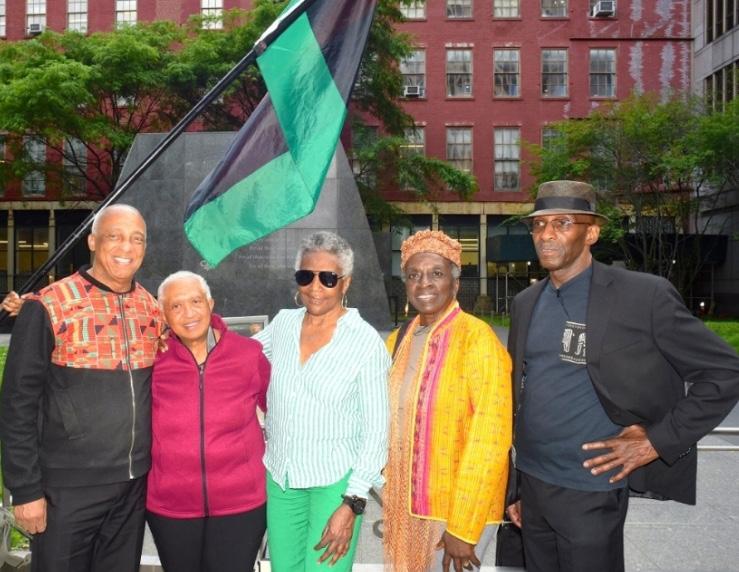
2 minute read
Charles Barron makes case for reparations
By MAL’AKIY 17 ALLAH Special to the AmNews
While many people of various ethnicities participated in the recent Independence Day festivities, some contend the holiday was established only for a certain segment of this country’s society. Juneteenth’s recognition as a national holidayhas raised awareness as to when enslaved Africans in this country achieved some semblance of independence, as well as making a successful demand for reparations for their descendants.
“On July 4, 1776, while Betsy Ross was stitching the American flag, we were still catching stitches in slavery,” explained elected activist and Operation P.O.W.E.R. founding member Charles Barron. “Juneteenth and reparations without liberation will have us still on the American plantation. Juneteenth without reparations is not a full accomplishment.”
Although several other ethnic groups have fought for — and received — financial compensation for some of the wrongs the United States have committed against them or their ancestors, many contend that “Americanized-Africans” have not received their 40 acres and a mule, or anything else, because a strong enough case has yet to be presented against this country in a court of law.
The councilman for Brooklyn’s 42nd district then described how his co-chair,
Keron Allen, during a recent Zoom meeting “did an excellent job explaining Juneteenth and connecting it to the importance of reparations.”
Barron also went on to lay out how “the Emancipation Proclamation by Abe Lincoln, who is a racist by the way,” was a farce. “He said, ’If I could free the Union without freeing any enslaved Africans, I would,’ but he was concerned about the Union. The 13th Amendment moved slavery from the plantation to the penitentiary.”
He added how one of the first successful cases for reparations “happened in 1763, Belinda Sutton in Massachusetts and her daughter, were enslaved for 30 years and got some of their former enslavers estate.”
Then, “in 1865, Jordan Anderson called for reparations in Ohio. In 1898, Callie House fought for the ex-slave pension movement, she won, 10 years later got slapped with the same charge they hit Garvey with, trying to fraudulently collect money, when she was actually fighting for reparations.”
”Then of course, Queen Mother Moore in 1962 said, ’Pay me my reparations,’ got over a million petition signatures sent to President JFK.”
He also mentioned efforts by Malcolm X, Martin Luther King Jr., The Black Panthers, Jesse Jackson, N’COBRA, D12, and that, in 1982, The African Peoples Socialist Party in Brooklyn held forums and tribunals on reparations. And how, “in 2001, The United
Nations World Conference against racism determined that the Trans-Atlantic slave trade is a crime against humanity. Retroactively we can take them to court because there is no statute of limitations on that.”
Barron concluded, “So now, because of our movement, New York State passed a bill on reparations. It’s not the bill we wanted, they watered it down, so we’ll take that. The struggle needs to intensify for our liberation and radically change our political system. Socialism would be better, African communalism. We have to fight hard in our lifetime, so our children will have a better life.”










